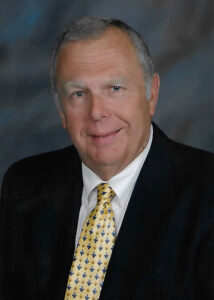
September 2022
The following are several drug diversion news stories that have captured our industry’s attention.
Hospital failed to secure approval to hire a nurse who had two criminal convictions
Iowa state inspectors cited an Iowa City hospital for failing to conduct a background check on a nurse during its hiring process. After the nurse’s firing for suspected opioid theft, it was revealed that the individual procured a 100mg vial of fentanyl on two separate occasions and reported administering the painkiller to patients who never received the dosage. The hospital failed to report the incidents to the Department of Inspections and Appeals. An ensuing investigation found that the nurse had two prior criminal convictions and the hospital failed to secure the required approval to hire them.
“Extraordinary nurse” accused of taking medical-grade narcotics
A northern Kentucky nurse was arrested on charges of drug possession and child endangerment after fentanyl and morphine were found inside her home. The investigation was prompted when two children found the drugs inside the home of Amy Blaize, who worked at Deaconess Hospital in neighboring Evansville, Ind. Authorities found the drugs and other items “consistent with the use of I.V. drugs in a hospital setting.” The registered nurse was previously named the July 2021 DAISY Award winner for extraordinary nursing.
Dayton quickly acts to protect patients and fires diverting nurse
Kettering Health Dayton hospital in Ohio took swift action to fire a male nurse and notified authorities after discovering missing medications. John Harold Archibald was charged with stealing hydromorphone and fentanyl between January and March of this year. In addition to letting Archibald go, the health system filed a complaint to the State of Ohio Board of Pharmacy, which deactivated his nursing license.
Former paramedic accused of stealing at least 70 vials of fentanyl
Federal authorities accused a former paramedic of stealing several vials of fentanyl from a Denver hospital. Christopher Robert Pattinson allegedly took 70 vials of the opioid from Denver Health from November 2018 through January 2022; he took 50 of them for himself while claiming to administer them to patients. The health system’s investigation found that no patients were harmed as a result of Pattinson’s diversion. He faces 20 counts of “tampering with a consumer product and 38 counts of obtaining a controlled substance by deception.”
Narcotics addiction led dentist to prescribe herself opioids
Former dentist Vivian Letizia was sentenced to one year of probation by a federal court for obtaining oxycodone by misrepresentation, fraud, deception or subterfuge. A pharmacist in Woodstock, N.Y. suspected Letizia of writing prescriptions for her own use when she picked up a prescription for a patient. The suspicion led to an investigation, which in turn led to her confessing to other incidents. Letizia claimed her actions were driven by a “gripping” addiction to narcotics and pleaded guilty in April 2022.
Moore County nurse arrested for stealing pills from jail
Deanna Marie Thomas was arrested for stealing antibiotics from Moore County Detention Center, where she was assigned by Southern Health Partners. The former nurse took these drugs, as well as other non-narcotics, and gave them to family members. Thomas’s nursing license did not allow her to dispense medication. She is charged with larceny, practicing medicine without a license, practicing pharmacy without a license, and felony to commit conspiracy. A court date is set for September.

The Justice Department settles an agreement with Indiana State Nursing Board in Discrimination Case Against Nurses with Opioid Use Disorder
The Indiana State Board of Nursing agreed to settle claims that it discriminated against nurses who are taking methadone or buprenorphine for opioid use disorder (OUD). The board previously did not allow nurses participating in the Indiana State Nursing Assistance Program to take medication for their OUD. A complaint indicated the nursing board violated the Americans with Disabilities Act by forcing nurses with OUD to choose between “recovery and their livelihoods.”
The Nursing Board has agreed to pay $70,000 in damages to the complainant and to revise its policies. This agreement is critical because both the Civil Rights Division and the U.S. Attorneys’ offices have been working to remove discriminatory barriers for individuals who have completed, or are participating in, OUD treatment

Study shows 1 in 7 physicians use alcohol, drugs while on the job
![]() A new study revealed that one out of seven physicians admitted to using alcohol or controlled substances while on the job this year. The survey of 1,000 American healthcare workers revealed that 21 percent of physicians consume these products multiple times a day, often due to burnout or stress at their workplaces. Although 20 percent of healthcare workers get help through a rehab facility or detox program, 14 percent did not want to admit they had a problem. The study, which highlights a threat to quality patient care, also indicated that male workers are:
A new study revealed that one out of seven physicians admitted to using alcohol or controlled substances while on the job this year. The survey of 1,000 American healthcare workers revealed that 21 percent of physicians consume these products multiple times a day, often due to burnout or stress at their workplaces. Although 20 percent of healthcare workers get help through a rehab facility or detox program, 14 percent did not want to admit they had a problem. The study, which highlights a threat to quality patient care, also indicated that male workers are:
- More likely to report stress, burnout and trauma
- More likely to consume alcohol or controlled substances at work
- More likely to struggle with substance misuse

DDWatch highlights individuals who promote excellence in the business world. Their stories and leadership experience are what inspires others and move them to action.
IHFDA executive director shares his past and a future without diversion

John Burke
Drug diversion touches several victims. Patients are harmed when their medications are stolen or tampered. Institutions lose millions when pilfered medications are taken and not tracked. The facility loses the trust of the community because its reputation has been tarnished. Even diverters can fall victim to their own theft – they could be arrested, lose their license, or overdose at work while trying to feed their addiction.
John Burke has seen far too many victims after serving nearly five decades as a law enforcement officer. His lifelong desire to stop diversion led him to co-establish the International Health Facility Diversion Association (IHFDA) with Kimberly New in 2015, where he is now Executive Director. Burke hopes that his experience can help hospitals find new ways to solve problems with medication theft before patients are affected.
Burke served nearly 50 years in the state of Ohio, including 32 years in the Cincinnati Police Department (CPD before serving as the IHFDA executive director. His pharmaceutical diversion experience started back in 1990 when the state of Ohio gave the CPD a grant to investigate theft from local hospital pharmacies.
“At its height, we were arresting one healthcare worker a week – about 50 staffers a year,” said Burke. “At the time, there was plenty of reluctance, if not downright refusal, from health facilities to report potential diversion events. Our job was made harder because administrators would sometimes get orders from their attorneys to not share information because they worry the report could leak to media and end up on the news.”
Unfortunately, allowing a case to go unreported is far more dangerous than simply reporting it, noted Burke. Nearly a decade later, some institutions are still hesitant to believe drug diversion occurs within their walls. When asked what they could do to reduce their risks, Burke mentioned that outstanding facilities have at least three traits:
They have a diversion team in place. A multi-disciplinary team assigned to drug diversion prevention can quickly act to resolve potential issues. These teams also have the complete support of hospital administrators to begin investigations.
They empower their team. Exceptional hospitals give their drug diversion team the freedom to access whatever records are needed and provide them with resources to do their work effectively and efficiently.
They are committed to protecting patients and healthcare workers. These hospitals prioritize their work on putting the people they care for first. They approach drug theft with compassion and understanding and are committed to helping drug diverters seek help.
While a great deal has changed since the year IHFDA was established, one thing that has not changed, according to Burke, is its dedication. The IHFDA will continue to provide facilities resources to achieve the best possible outcome for patients, facilities, and those who need help with addiction.
With this vision in mind, Burke prepares for the 2022 annual conference with excitement and anticipation. It will also be the first in time (since the pandemic) that attendees will meet in person.
“Attendees can expect worldwide experts presenting diverse topics, new innovations, and eye-opening case studies,” noted Burke. “No other organization concentrates on this issue exclusively, and our staff and presenters are the best in the business.”
Until the healthcare industry as a whole solves the battle of addiction and drug diversion, healthcare workers will continue to be at risk. IHFDA will be there, ready to help and guide the industry to a safer future.
###


